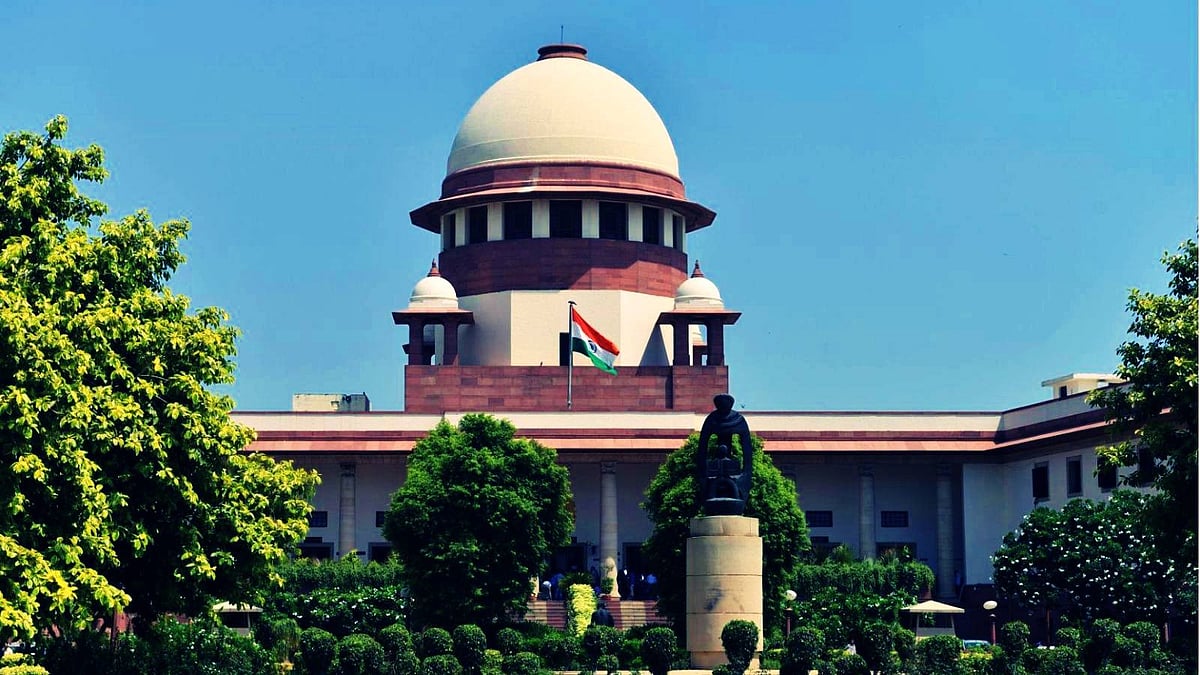SC Hearing On Governors' Powers: Solicitor General Tushar Mehta Opposes 'Postman' Label, Stresses Constitutional Role
Solicitor General Tushar Mehta opposed the argument that Governors are mere “postman.” He maintained before the Supreme Court on Wednesday that Governors occupy a high constitutional office and are part of the legislative process, with implied discretion in exceptional cases.

SC Hearing On Governors' Powers: Solicitor General Tushar Mehta Opposes 'Postman' Label, Stresses Constitutional Role | PTI
New Delhi: Solicitor General Tushar Mehta opposed the argument that Governors are mere “postman.” He maintained before the Supreme Court on Wednesday that Governors occupy a high constitutional office and are part of the legislative process, with implied discretion in exceptional cases. He stressed that while most Bills are assented to quickly 90% within a month Governors cannot be reduced to “ornamental” figures. He argued that withholding assent means a Bill “falls through,” borrowing terminology from Constituent Assembly debates, and warned against courts amending the Constitution by judicial interpretation.
His arguments came as the Supreme Court continued hearing the Presidential reference on whether timelines can be fixed for Governors and the President to act on Bills passed by State legislatures. Bar & Bench and Live Law report that the Supreme Court Bench engaged with the arguments, with Justice P S Narasimha raising questions on balancing federalism and democracy when Governors act on Bills.
ALSO READ
Solicitor General Defends The Governor's Role As Constitutional Head
The Solicitor General also defended the Governor’s role as a constitutional head who must preserve, protect, and defend the Constitution under oath, and not as an agent of political parties or the Union government. Senior Advocate Niranjan Reddy, appearing for Telangana, argued that Article 200 does not give Governors general discretion, except in narrow cases like the second proviso where a Bill affecting the powers of the High Court must be reserved for the President. He said the very presence of such a proviso shows that Governors otherwise have no discretion and must act on the aid and advice of the Council of Ministers.
Reddy also cautioned against expanding Governors’ powers beyond what was intended by the Constitution-makers, noting that the Union today is stronger and does not need such oversight to guard against fissiparous tendencies. Senior Advocate P Wilson stressed that Articles 200 and 201 fall under legislative procedure, and must be interpreted to protect State autonomy, the federal structure, and parliamentary democracy. He urged the Court to ensure that the people’s will, expressed through elected governments, is not frustrated by indefinite delays.
Wilson also argued that judicial review applies to the actions of constitutional authorities, citing cases like S.R. Bommai, Rameshwar Prasad, and the State of Rajasthan. Senior Advocate Gopal Sankarnarayanan highlighted that advisory opinions under Article 143 are “reports” and not judgments, but still carry significant constitutional weight.
Advocate Avani Bansal urged the Court to recognise the “right to time” under Article 14, arguing that indefinite inaction by Governors or the President amounts to arbitrariness. The hearing saw sharp exchanges, with Senior Advocate Kapil Sibal remarking that such controversies have arisen “only after 2014,” to which the Solicitor General responded that Governors had acted within constitutional limits for decades. Arguments are set to continue tomorrow, with the Bench aiming to conclude the hearing by 1 pm.
RECENT STORIES
-
-
-
-
-